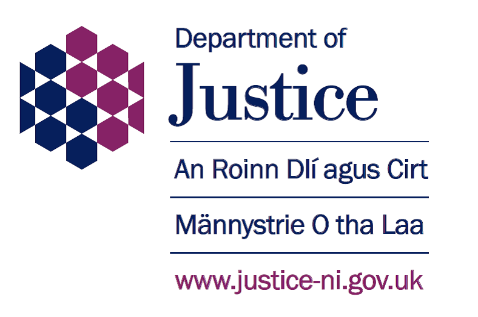Call for Evidence for Children and Young People - Foundational Review of Civil Legal Aid
Overview
The Department of Justice is seeking the views of children and young people who may have needed to get legal advice for an issue or help in court. Please only complete this Call for Evidence if you are below the age of 18. If you are aged 18 and above, please complete the Call for Evidence for Civil Society which can be accessed via: Call for Evidence for Civil Society - Foundational Review of Civil Legal Services - NI Direct - Citizen Space
If you or your family cannot afford to pay for your own advice, and your case has a strong chance of success, you should be able to get access to legal advice and help in court, dependent on you - or your family's - financial circumstances.
There are three Parts to this Call for Evidence:
Part 1 - the questions in this section are intended to help us understand your experience of accessing justice by getting legal advice or help in court.
Part 2 - in this section, we are giving you a number of statements and are asking for you to tell us what you think of each statement. This will help the Department of Justice develop opportunities for reform of civil legal services.
Part 3 - this section relates to equality monitoring questions. Completing this section is entirely voluntary and you are only asked to respond if you feel comfortable answering. If you don't know what the question means, you can select that box. We ask for this data to help us understand how our policies, services and processes affect all children and young people. We want to ensure everyone can access justice. Equality monitoring data helps us to make our services better. If you are submitting a response on behalf of an organisation, there is no need to complete this section.
Your views will be considered as part of the Department's Foundational Review of Civil Legal Services.
Why your views matter
This is your opportunity to ensure your voice is not only heard but listened to in the Department of Justice's Review of Civil Legal Aid. You may think that this does not affect you and you have never experienced a legal need. However, if you have ever purchased a faulty item, then you may have needed legal help to get your money back. The legal needs of young people in Northern Ireland are varied and diverse and you may need help from the civil courts for many reasons, including:
- Adoption.
- Deciding who you have live or have contact with after a divorce.
- Asylum issues.
- Discrimination in terms of age, gender, sexual orientation.
- Exclusion from school.
- You may be a looked after child whose views should be taken into account in planning for your care and ensuring you are able to keep in contact with family and friends, where appropriate.
- You may have purchased faulty goods and need to get your money back.
These are only a few of the reasons why you may need access to legal help and why your views are important to us.
Also, if you have experienced a legal need, we need your views on whether your legal needs were met and whether the people you came in contact with communicated with you effectively, explaining complicated matters clearly in a manner that was non-patronising and engaging and whether you feel you were listened to and your views were taken seriously.
You have rights. You have access to legal aid, and we want to hear from you to ensure our services and processes continue to be child-friendly and access to justice is accessible to all, regardless of age.
Audiences
- Anyone from any background
Interests
- Higher Education
- Primary Education
- Post-Primary Education
- Pre-school Education
- Special Educational Needs
- Youth Sector and Youth Services
- Further Education
- Migration
- Community
- Rural
- Disability
- Academies
- Policy Development
- Health and social care policy
- Health and social care legislation
- Courts
- Family Justice
- Civil Justice
- Stakeholder Engagement
- Communications

Share
Share on Twitter Share on Facebook